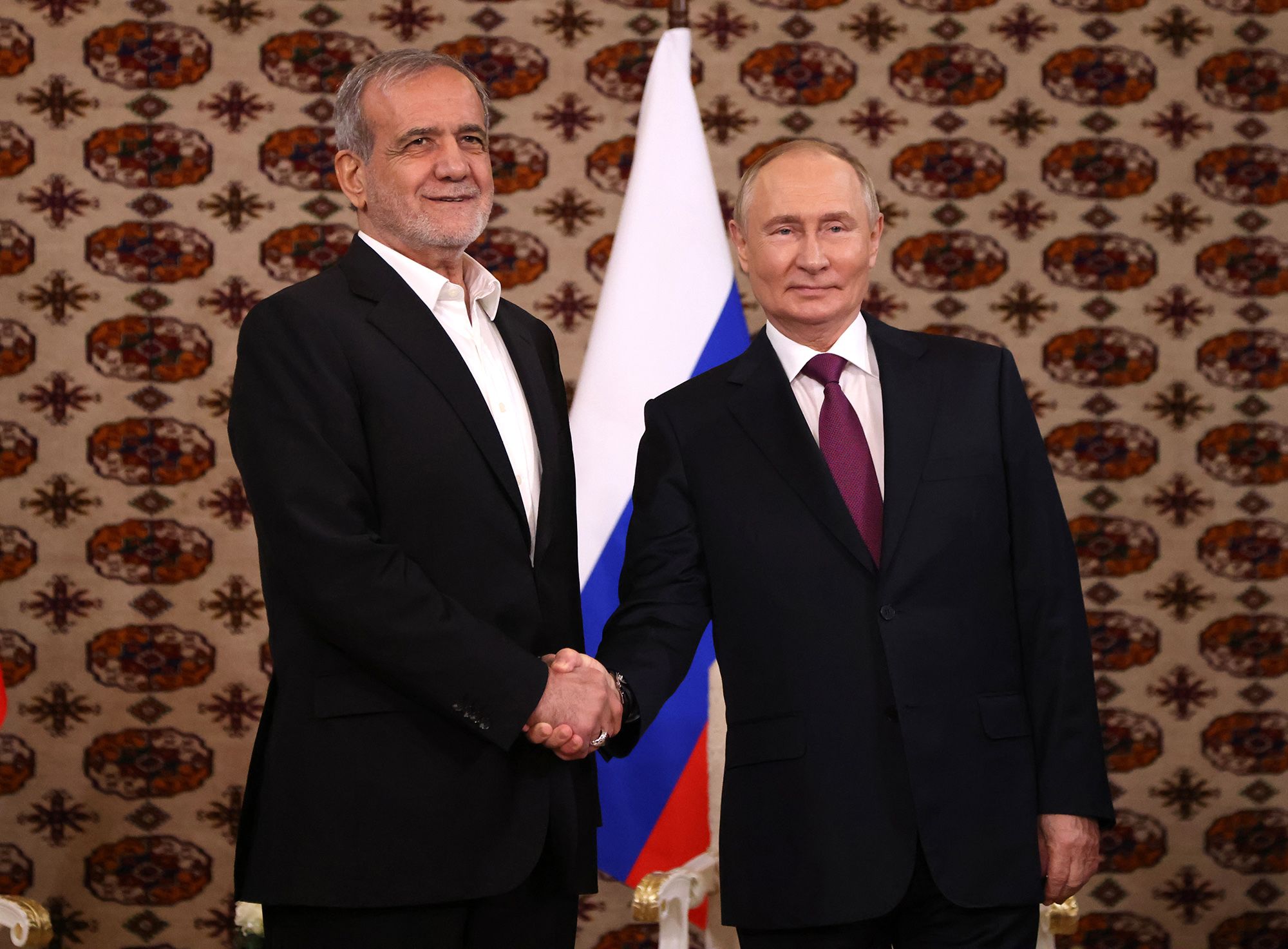Just days before Donald Trump returned to the White House, two of the country’s most powerful adversaries – Russian President Vladimir Putin and his Iranian counterpart President Masoud Pezeshkian – signed a 20-year comprehensive strategic partnership treaty promising to enhance ties, including by pursuing cooperation in energy, trade and the military.
In itself, the deal offers both parties nearly nothing new, and changes little about their existing relationship. It includes a clause that states that neither country would allow the use of its territory by any country or group acting against the other country, and also forbids each country from supporting any party that might attack the other. But the document does not detail any specific military alliance, and no party has any obligation to implement the agreement.
The two countries remain engaged in separate conflicts against NATO allies – albeit to different degrees – and the deal appears to simply formalize the alliance that has grown between them since Russia’s full-scale invasion of Ukraine in 2022, in which Iran has provided Russia military support and Shahed drones. That support has been crucial for Russia, as it has found itself isolated on the world stage amid mounting sanctions, but such sanctions have also been a constraint on Tehran ever since the 1979 revolution gave rise to an extremist regime.
However, the timing of the deal makes it noteworthy. While it comes at the start of Donald Trump’s presidency, and thus appears intended to draw an us-versus-them line between the West and what former national security adviser H.R. McMaster has called the “axis of aggressors” (which includes North Korea), it also follows the collapse of the Russian-backed Bashar al-Assad regime in Syria.
Both Moscow and Tehran had been significantly involved in the conflict in that country. Syria was particularly crucial to Moscow, as Mr. al-Assad’s regime provided key naval air bases for the Russian military; those forces have had to withdraw. Iran, for its part, had invested heavily in Syria’s operational and military capacity, including by supporting its military proxies, which allowed Mr. al-Assad to continue waging his civil war.
But when push came to shove, neither Moscow nor Tehran came to the aid of Mr. al-Assad’s authoritarian government.
Read full article on the Globe and Mail
